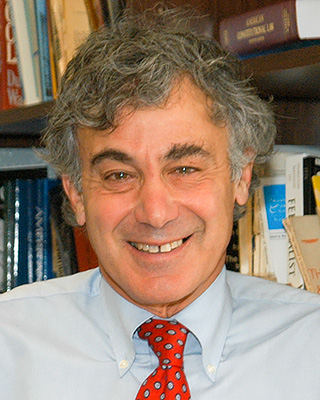 Prof. Jeffrey Abramson, a nationally recognized expert on juries and the jury system, took to the opinion pages of the Dallas Morning News today to react to the recent Supreme Court ruling in Pena-Rodriguez v. Colorado. In that case, the court considered whether a Colorado man should be given a new trial when it was revealed that a member of the jury that convicted him had made racially biased remarks about the accused man in the jury room. Justice Kennedy wrote the majority opinion, stating that a “constitutional rule that racial bias in the justice system must be addressed—including, in some instances, after the verdict has been entered—is necessary to prevent a systemic loss of confidence in jury verdicts, a confidence that is a central premise of the Sixth Amendment trial right.”
Prof. Jeffrey Abramson, a nationally recognized expert on juries and the jury system, took to the opinion pages of the Dallas Morning News today to react to the recent Supreme Court ruling in Pena-Rodriguez v. Colorado. In that case, the court considered whether a Colorado man should be given a new trial when it was revealed that a member of the jury that convicted him had made racially biased remarks about the accused man in the jury room. Justice Kennedy wrote the majority opinion, stating that a “constitutional rule that racial bias in the justice system must be addressed—including, in some instances, after the verdict has been entered—is necessary to prevent a systemic loss of confidence in jury verdicts, a confidence that is a central premise of the Sixth Amendment trial right.”
Prof. Abramson is well aware that this is a decision with potentially profound consequences. We reprint the opening paragraphs of his essay here, with permission. Read the entire op-ed, available online at the Dallas News website, here.
“Did the Supreme Court open a Pandora’s Box on jury discrimination?”by Jeffrey Abramson, Contributor
“What happens if, after a jury convicts a defendant, one or more of the jurors alert the judge or lawyers that serious misconduct occurred in the jury room? The answer, in a major Supreme Court decision this month, is that it depends on what the wrongdoing was.
“In 1987, jurors complained that several of their fellow panelists were using drugs and alcohol and often asleep during the trial. Nonetheless, the Supreme Court upheld the defendant’s conviction, citing centuries-old principles that prevent courts from invading the confidentiality of privacy jury deliberations. We want jurors to have the independence it takes to converse freely. That independence is lost if jurors know that judges can investigate their behavior. While it is bothersome to find that jurors were high on drugs, the court concluded there was no evidence that such wrongdoing was common enough to change the traditional prohibition from reviewing what went on in the jury room…”
For those interested in more of Prof. Abramson’s work on the jury system, see the 2000 edition of his major work, “We, The Jury: The Jury System and the Ideal of Democracy,” available from Harvard University Press.
